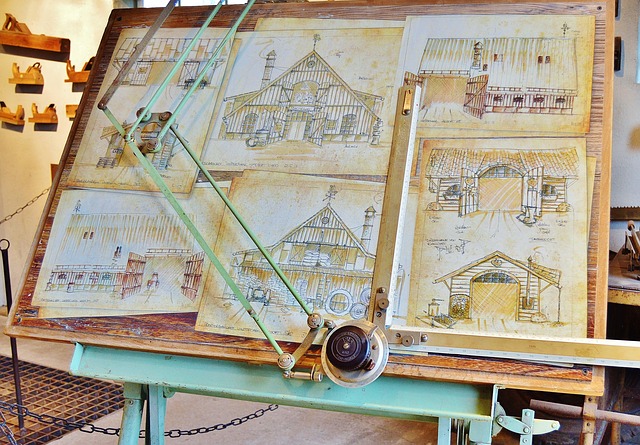
Building Recovery – Location
In this metaphor location means who you are involved with socially, what neighbourhood do you want to live in? This part of the metaphor is one of the closest to the real thing as you may have to physically move in order to recover. To help you to think through the challenges involved here read through this article which will look at the assumptions we make as well as the grieving we must do.
Don’t assume that you can recover where you are
I often say that the ‘medical way’ of looking at recovering from addiction is not the most useful. It can lead to an idea that we can recover just by stopping using the drug of choice or the behaviour that is addictive and leave everything else the same. I want you to know that in most cases this idea has to go! If I said to you that in order to recover you had to change your social life completely what would you say?
When you recovery from addiction you must take into account many aspects of your life. There is the chemical aspect and the behavioural aspect. Of course these are seen as the most important. But there is also the Family aspect, the work aspect, the financial aspect and, last but not least, the social aspect. Who you spend your time with when you have a choice about it will have a huge impact on the quality of your recovery. As well as how hard it is to achieve.
Location, location, location!
One of the biggest questions you will ask yourself when you are thinking about building or buying your new home is “where do I want to live”? I want you to start thinking about this as part of your preparation. In using our metaphor of building your recovery, consider moving away from your current location. By which I mean the people you are spending time with. Ask yourself, what have they got me doing? What have they got me thinking? What follows are a few thoughts to help you to consider this question in more depth.
The disapproval of others

One of the things that will affect the way you think this through will be the influence others have on you. If you are ‘easily led’ or too keen to meet others expectations, you will tend towards staying where you are. This is because of the way that we tend to surround ourselves with people who agree with us. Social media has taken this to extremes these days by using algorithms that increasingly focus us on who we already are. This has a tendency to make us more closed minded and narrow. It’s an extreme version of what we do socially.
Make no mistake, when you move home you will upset some people who had other plans for you. Even if all you are doing for them is making them look more normal by drinking as much as they do, they will argue for you to ‘stay where you are’. If you have been using drugs or drinking for a long time it can be your whole social world. Take the time to think through the difficulties here and how you might cope with them.
Acceptance of limitations
You may have a tendency to overestimate your ability to cope with things. An inflated ego goes hand in hand with low self worth. Don’t be fooled by that cocky overconfident voice that tells you that ‘you’ll be fine’. Staying in the same ‘location’ can mean that you are surrounded by people who have a vested interest in keeping you addicted.
Ask yourself this “how easy is it for me to say no to my friends”? In other articles you will learn about your ‘triggers’. How many of them are produced by your friends can be shocking. Being honest about your limitations can be the best preparatory step you take.
Letting go of quick fixes
As part of my work I have worked with many sportsmen, including wrestlers and trainers. They are the ones most likely to understand what I mean when I say that becoming mentally ‘fit’ is very similar to becoming physically fit. It as about the same level of difficulty, it takes about the same amount of time and is about as challenging to maintain. Take a look at your tendency to ‘minimise’ things now. This is not a quick fix. This is not going to be as easy as you may have found other challenges. Buying a new home is a twenty five year commitment. The more you have that in perspective the better chance you have.
Expect to grieve the old location
If you move (and I want you to know that most of you need to) you will begin a grieving process. This is normal and inevitable. It forms one of the major difficulties in recovery. Although it is often played down or missed out altogether in some approaches. Why might you find it so difficult? Mainly because you may be ignorant of it. If you do not expect to go through it you will misunderstand it and will probably feel there is something wrong with your recovery.
I want to take you through the different phases of bereavement as well as some of the typical things you can expect as part of this process. This will help as I always say…..
Expectation changes experience!
One of the things that will affect the way you think this through will be the influence others have on you. If you are ‘easily led’ or too keen to meet others expectations, you will tend towards staying where you are. This is because of the way that we tend to surround ourselves with people who agree with us. Social media has taken this to extremes these days by using algorithms that increasingly focus us on who we already are. This has a tendency to make us more closed minded and narrow and is an extreme version of what we do socially.
Make no mistake, when you move home you will upset some people who had other plans for you. Even if all you are doing for them is making them look more normal by drinking as much as they do, they will argue for you to ‘stay where you are’. If you have been using drugs or drinking for a long time it can be your whole social world. Take the time to think through the difficulties here and how you might cope with them.
Denial
Denial is part of the early stages of bereavement and in terms of your recovery is often felt prior to giving up. In the same way that, if their loved one is involved in a long illness, a family often begin their grieving prior to losing them. So make sure that you are no longer in denial by the time you decide to quit. Preparation can include quite a lot of the grieving process prior to stopping.
Bargaining
Bargaining is a complex form of denial that either minimises the loss or creates a ‘deal’ that influences the loss. Usually by some form of commitment. In the loss of a loved one, it often takes the form of charity work. Essentially the deal is something like “If I can raise enough money for research into this illness, it won’t have really happened”. In the context of recovery it sometimes takes the form of ‘service’ in a fellowship such as AA. Or it can be the throwing of yourself into ‘being the Dad you should have been’ etc. When it comes prior to stopping it is often a form of minimising such as “this is no big deal”.
Depression and Anger
I’m going to put these two stages together for the sake of this article as there are so many cross over points. Although they are different, in standard bereavement they are interchangeable and may come and go to an extent.
Without understanding that this is a normal and expected phase depression and anger can get in the way of your growth in recovery. No matter how bad it was, it probably wasn’t all bad. There are parts of your experience that you will naturally miss. There are things that your ‘addicted self’ could do that your ‘recovered self’ cannot, such as ‘exit-ing’ for the afternoon when you’re a bit bored. Depression and anger can also be part of regret. Remember that any form of addiction means that you are not where you should be in life. Your career, your family, your relationship. Even your bank balance are all affected. When you look at others who can seemingly do what you cannot. These are all common reasons to get angry or to become depressed, or both.
Acceptance
Of course acceptance is the final stage of bereavement, when you come to terms with reality and make peace with God or life or fate. And this is another reason why it is a part of recovery you need to be involved with. Again, this may be something you reach prior to stopping! Generally, this is achieved as part of your abstinent time but be aware that the depth of your preparation can cause you to go through the whole bereavement process prior to stopping.
Generally acceptance can be compared with a full recovery since it is a necessary component of a complete recovery. Although acceptance itself would not achieve your full recovery as I have seen people accept that they must not drink any more but not be much closer to truly recovering. Try the following exercise to get some idea of whether you need to move your location.
The relationship exercise
Again, just a simple exercise to get you thinking about the way your relationships construct you. And how they affect you. You will need a pen and paper only.
Write down the names of everyone you spend time with. About ten people is the average. Now think about scoring them from 1 to 10. The important thing here is that you are scoring them on how you feel about yourself after you have been with them. Not how you feel about them.
So, anyone above five is someone who you should consider spending more time with. Anyone below five you should consider spending less time with. This counts for family as well as friends and work colleagues. How does this affect your decision to move away from this area? If most are scoring less than five you almost certainly need to be thinking about moving away. Which means getting new friends or even a new job. If most are scoring over five then you are good to stay where you are. Just maybe make one or two adjustments.
So now we have covered the big three of preparation, Location Design and cost. The next series will be about your foundation building on which the rest of your house will stand. Till next time, don’t build too fast, or too slow.


